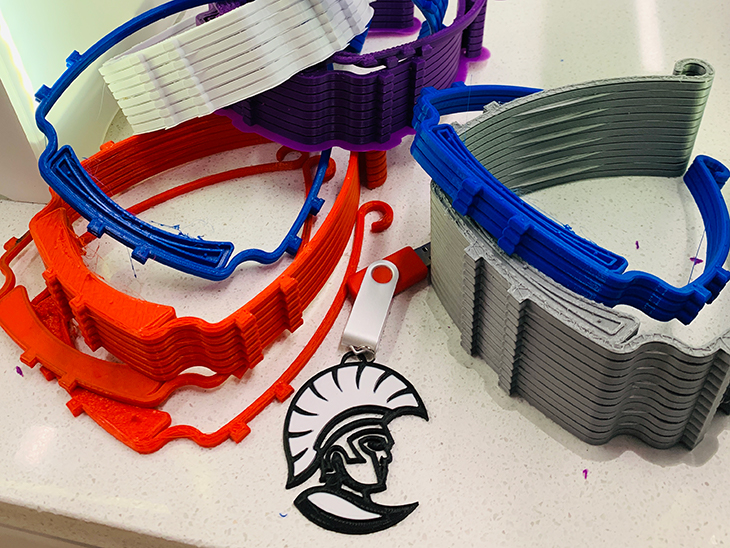Contact us
401 W. Kennedy Blvd.
Tampa, FL 33606-13490
(813) 253-3333
In response to the community’s shortage of personal protective equipment (PPE), The University of Tampa has been making protective face shields for health care workers — including shields going to Johns Hopkins All Children's Hospital in St. Petersburg and Moffitt Cancer Center in Tampa— using the tools from its digital fabrication lab, or Fab Lab.

In response to the community’s shortage of personal protective equipment (PPE), The University of Tampa has been making protective face shields for health care workers. Photo by Emma Quintana

Emma Quintana, coordinator of UT’s Fab Lab, is making protective face shields — visors that wrap around the head and include a plastic shield that is long enough to cover health care workers' glasses and N95 respirator. Photo by Quintana
More UT News